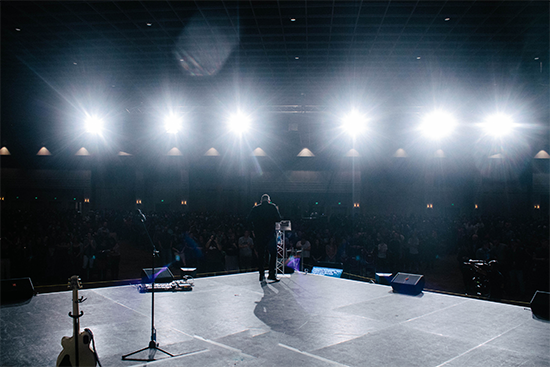
December 2019 -January 2020
On Assignment
------------------
|





INTERSECT
Donald McGavran and the Church Growth Movement, Part 1
A major development in the church of the 20th century has been the rise of the modern church growth movement. The key figure of this movement was founding father Donald McGavran. The beginning of this movement has been tied directly to McGavran’s seminal work, The Bridges of God (1955). [1] The book came out of his experiences on the mission field of India, which raised questions about what he perceived to be a lack of growth among its churches. Nearly two decades of mission work led him to research these questions more intently and publish his results in this book that became the seedbed for the church growth movement to follow. [2]
The church growth movement is a multifaceted phenomenon. Later generations of church growth practitioners sought to bring these principles to bear in the American church and evangelical global missions. The explosive growth of suburban mega-churches in the 1980s and ’90s is another offshoot of its effect. In short, the persistence of McGavran's influence throughout the second half of the 20th century ministry is remarkable.
Below, and in the next issue of ONE, we will highlight three principles central to McGavran and his followers and consider their theological fidelity.
Numerical Accountability
McGavaran emphasized numerical growth as a key principle. Thom
Rainer describes McGavran’s concern
to take Jesus’ command to make disciples seriously, stating, “It was not enough to sow seed and wait for God to produce results." [3] McGavran’s “numerical accountability” indeed provided tangible means for evaluating whether a particular church was “growing,” but it also sowed the seeds of unhealthy pragmatism. McGavran asserted the primary task of church growth is ascertaining which methods God has blessed, and those He has not. He determined this by methods yielding numerical growth and those that do not. He urged readers to discard ineffective methodologies, affirming, “As to methods, we are fiercely pragmatic”. [4] C. Peter Wagner describes this as “consecrated pragmatism” obedient to the gospel mandate to win people to Christ.
McGavran promised, “If any church will study church growth, read about it, talk about it, and pray about it, that church will grow”. [5] On the negative side, he cautions, “Without clear-cut, aggressive plans for the growth of the church, there will be no growth. The church doesn’t grow by carrying on good youth meetings, a good Sunday School, good preaching, or a good choir unless these are inspired by a desire to see persons become disciples of Jesus Christ and responsible members of His church”. [6]
While we likewise affirm that disciple making is central to Jesus’ Great Commission (Matthew 28:19), we are not willing to suggest faithfulness in this area will always yield numerical increase. Scripture clearly demonstrates a nuanced picture of church ministry, sometimes resulting in more disciples (Acts 2:41; 47), and sometimes not (John 6:66). It is easy to lose sight of the fact that disciple making is a spiritual work that defies measurability. This is one of the major problems with McGavran’s “method.” It reduces disciple making to a "formula" in the toolbox of the church growth practitioner.
[1] C. Peter Wagner. Church Growth and the Whole Gospel: A Biblical Mandate. San Francisco: Harper & Row, 1981, x-xii.
[2] Thom S. Rainer, The Book of Church Growth: History, Theology, and Principles. Nashville: Broadman & Holman, 1993, 33-34.
[3] Wagner, “The Church Growth Movement after Thirty Years,” in Church Growth: State of the Art, ed. Wagner. Tyndale House, 1986, 35.
[4] Wagner, Church Growth, 72, citing McGavran’s unpublished address, “For Such a Time as This,” delivered at Fuller Seminary School of World Mission, 1970.
[5] McGavran with Win Arn, How to Grow a Church: Conversations about Church Growth. Glendale, CA: G/L Publications, 1973, 15.
[6] Ibid, 169-70.
About the Columnists: Dr. Matthew McAffee serves as provost and professor at Welch College. He has ministered in Free Will Baptist churches in Virginia, Tennessee, Illinois, and Canada.
Barry Raper serves as program coordinator for Ministry Studies at Welch College. He pastors Bethel FWB Church in Ashland City, Tennessee.
|
|

